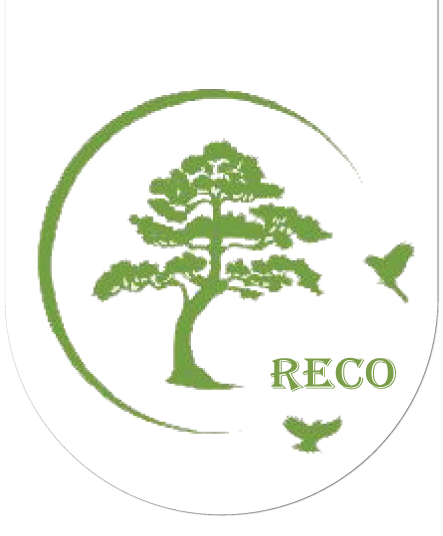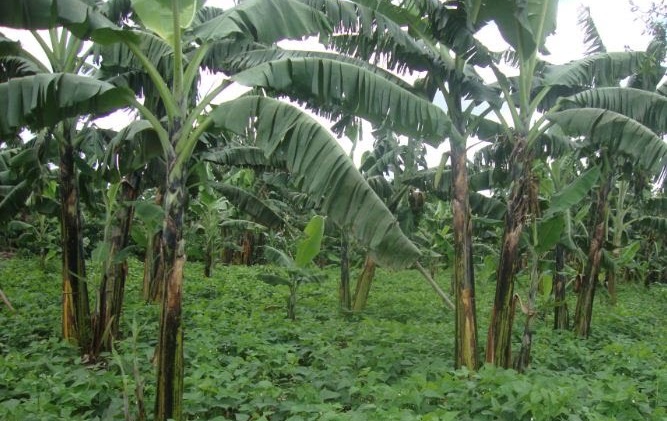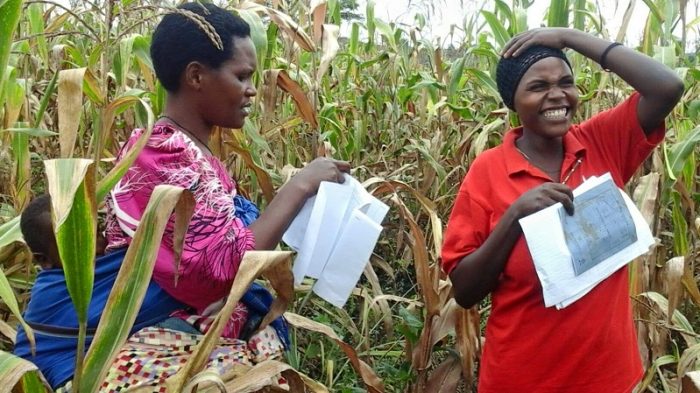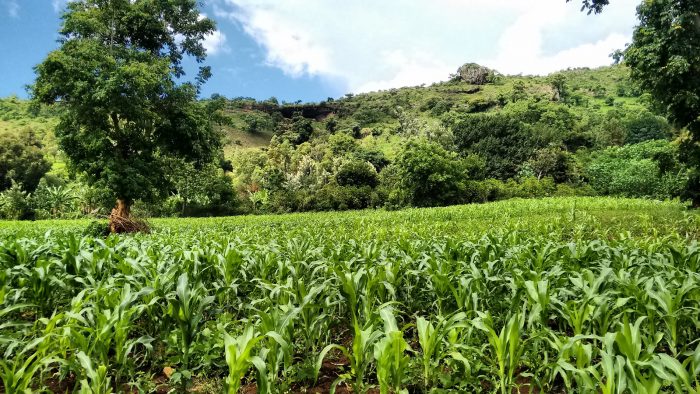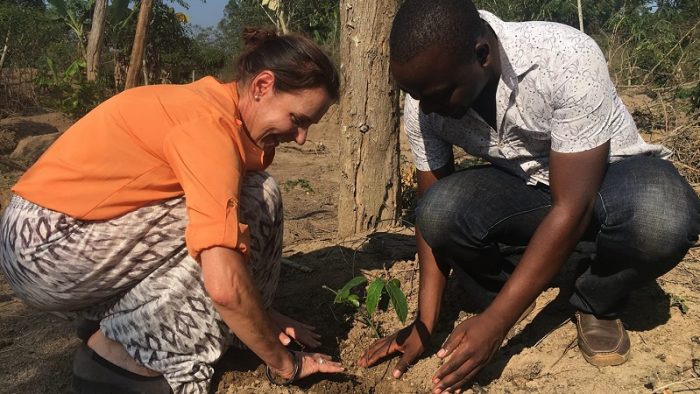Farmers in Rakai are the major beneficiary from a health ecosystem, but also have the potential to contribute to the protection of biodiversity. Agriculture locally is the main economic activity and covering the largest area.
The outcomes of these poor farming practices include land degradation, deforestation, water scarcity, wetland encroachment, climate change, and others. However, if managed sustainably, agriculture can contribute to important ecosystem functions. These include maintenance of water quality, nutrient cycling, soil formation and rehabilitation, erosion control, carbon sequestration, climate change resilience, habitat provision for wild species, biological pest control, and pollination.
There is a gap in building the capacity of farmers to shift towards agroforestry and sustainable farming practices.
Below are some of the activities RECO does to promote sustainable agriculture in the communities:
Farmer support
RECO distributes farm inputs freely to farmers including coffee seedlings, tree seedlings for agro-forestry, bean seeds, maize seeds, and farm tools like hoes. Thanks to diverse partners who support us with these inputs for distribution to farmers.
Farmer training
Using the United Nation’s Food and Agriculture Organization’s approach of farmer field school, RECO trains farmers in climate smart agriculture and sustainable land management practices.
Agricultural research
RECO collaborates with research institutions as local partners in implementing agricultural research. RECO hosts students willing to do research in our communities.
